

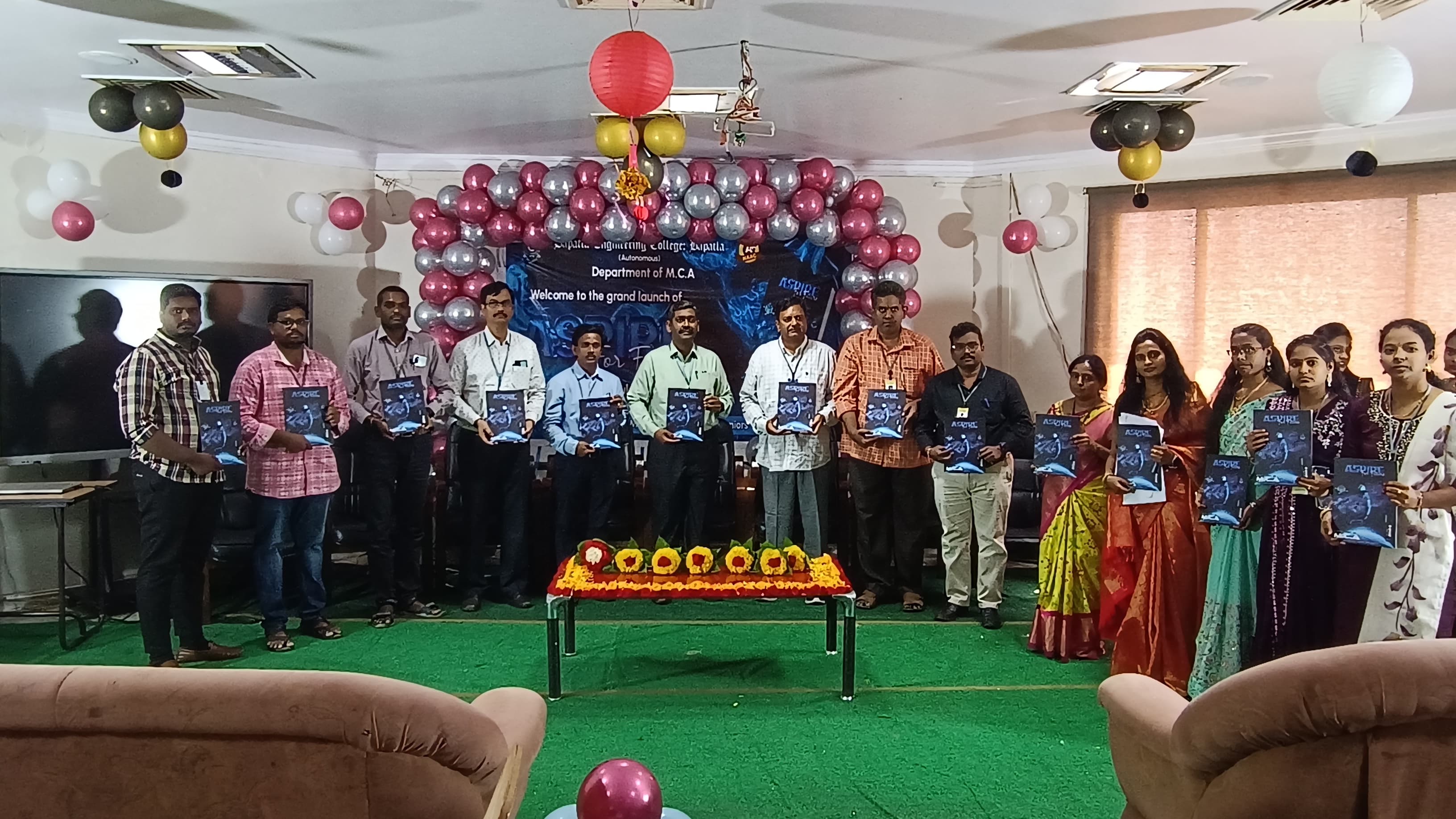
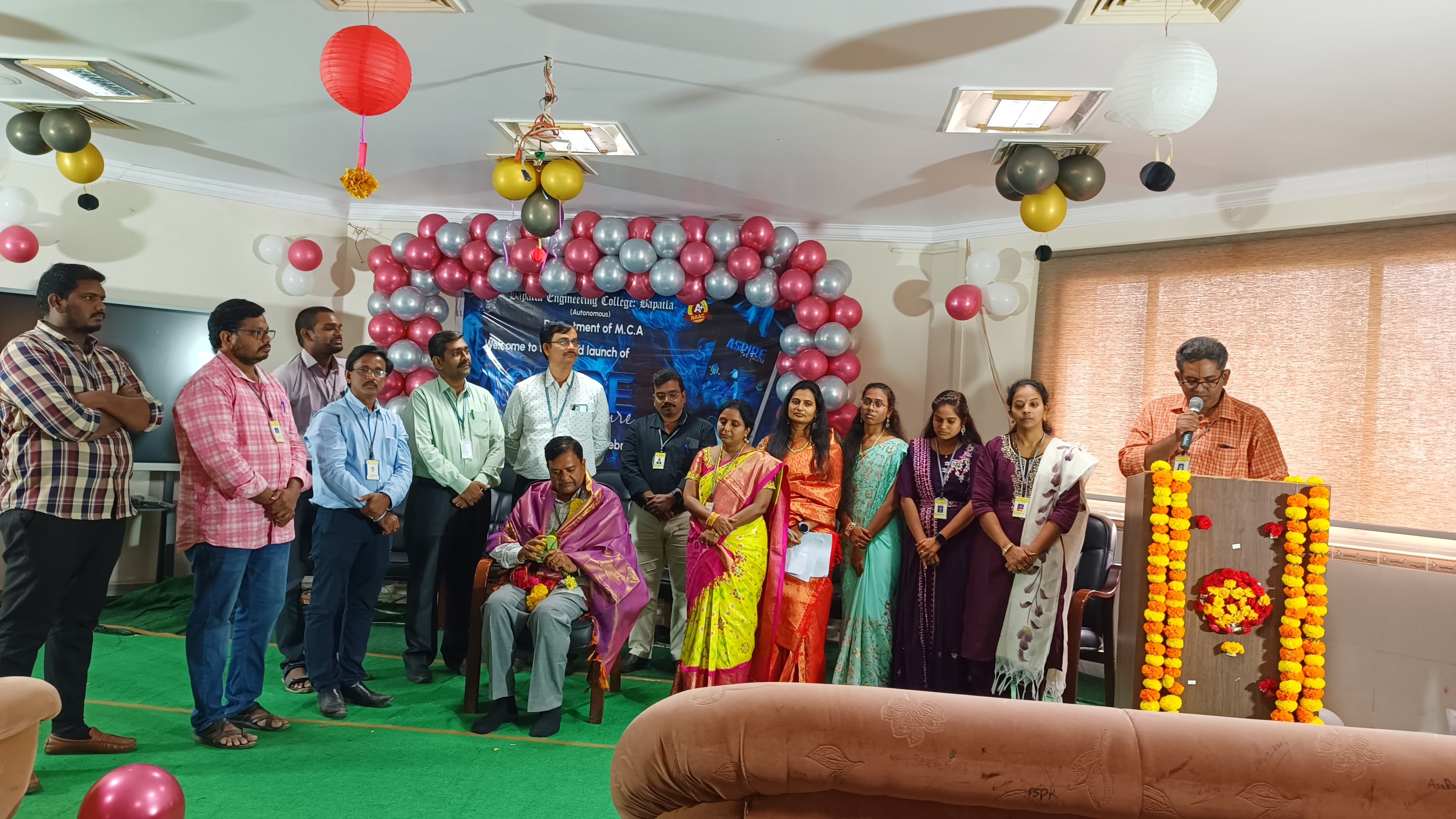
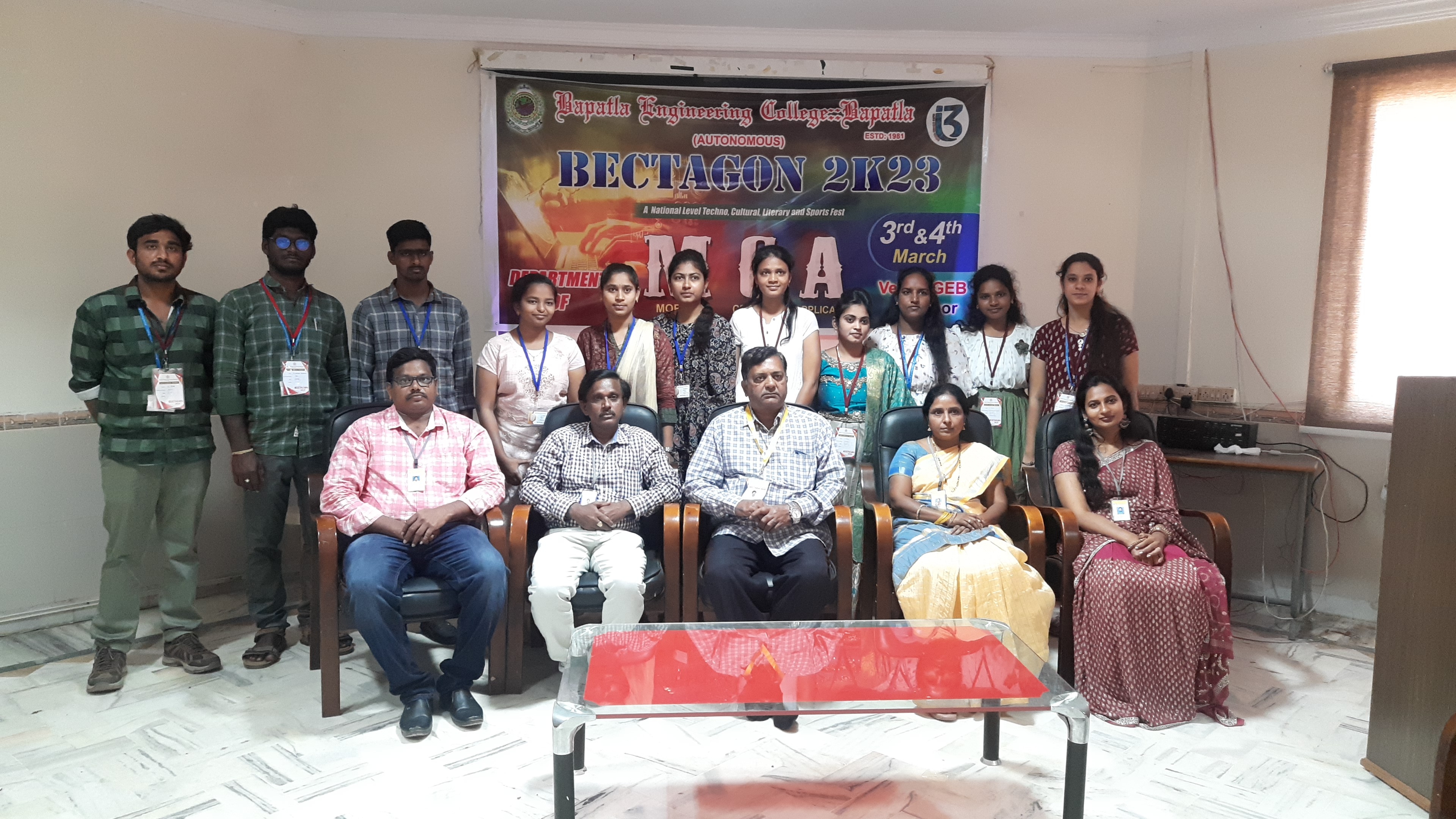
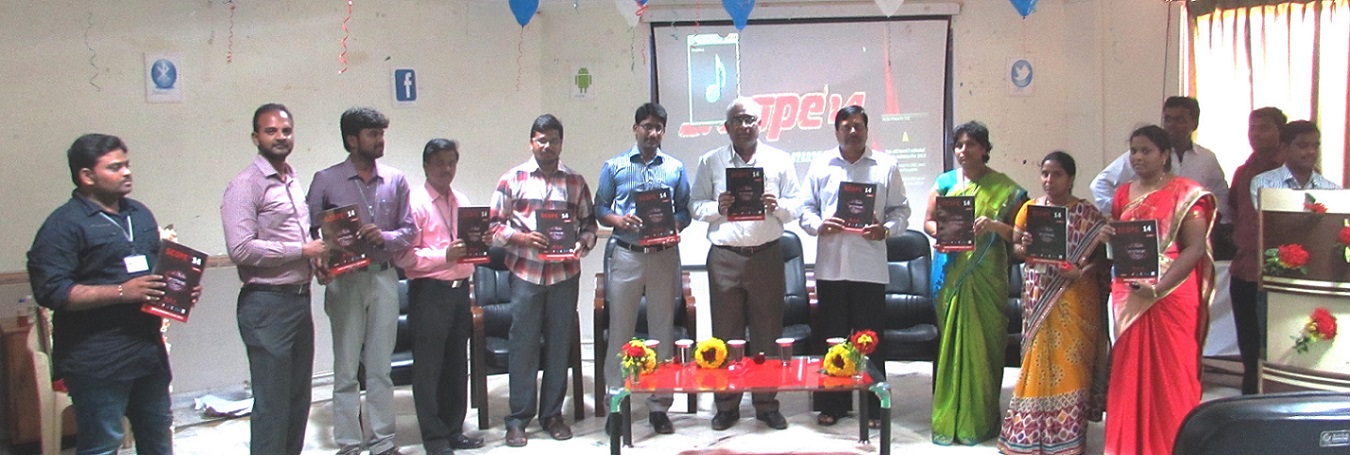
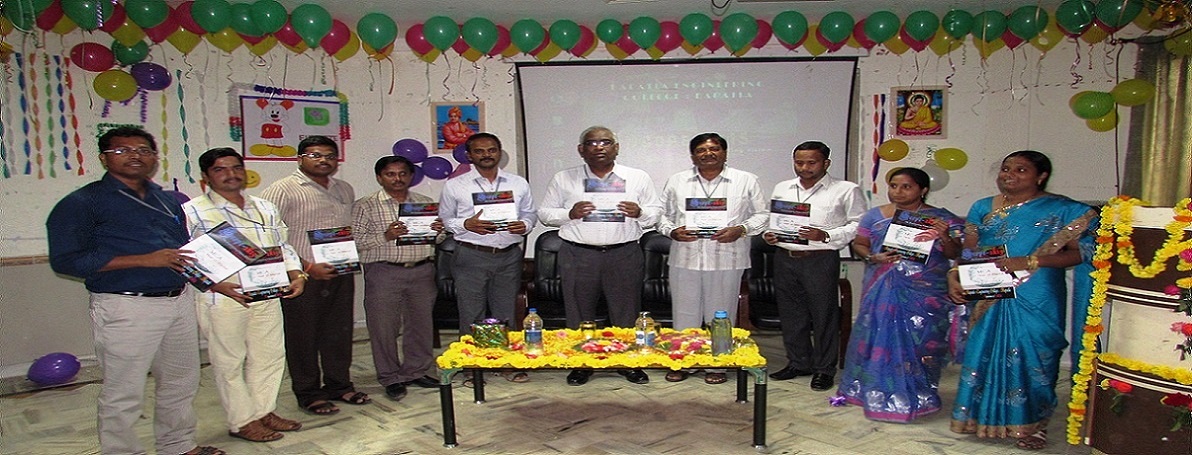
The Department of Computer Applications was started in 1997.The department offers M.C.A with an annual intake of 120. The department is equipped with the state of the art computing facilities and experienced staff members and is known for its academic excellence proved by its performances since its inception. The pass percentage of the department has been more than 97% and more than 70% of the students obtain distinction every year, which speaks of the academic fervor in the department.
Many of the students were placed in reputed organizations like CTS, TCS, Wipro, Infosys, Stayam,Vitusa,IBM , in challenging positions.
Students are encouraged to participate in extra-curricular activities and competitions held by other universities and colleges within the state and out-side the state. The students have won laurels to the college winning prizes in competitions. The department strives hard to impart quality education and to keep the students on the competitive edge of the present-day technology.
Programmes Offered by the Department:
| Course | Sanctioned Intake |
|---|---|
| MCA | 120 |
To be the source of bringing out globally competent pioneering computing professionals, researchers, innovators and entrepreneurs and thereby succeed and contribute value to the knowledge-based economy and society.
- To provide conducive environment so as to achieve excellence in teaching-learning, and research and development activities.
- To bridge the gap between industry and academia by framing curricula and syllabi based on industrial and societal needs.
- To offer tasks for experiential technology-intensive knowledge through collaborative and interdisciplinary activities.
- To provide appropriate forums to develop innovative talents, practice ethical values and inculcate as enduring learners.
- To facilitate students to nurture skills to practice their professions competently to meet the ever-changing needs of society
Programme Educational Objectives:
Programme Outcomes (POs):
After the successful completion of the MCA (2 years) Degree Programme, the student will be able to:
PO1: Apply the knowledge of mathematical foundations required for problem solving and the concerned analytical skills to analyze the problem at hand.
PO2: Identify, analyze, design and investigate the complex problems from the programmer’s perspective and formulate a solution using the technical skills obtained all through the program.
PO3: Design and conduct experiments, as well as analyze and interpret data, draw conclusions.
PO4: Apply current and emerging technologies for the problems at hand to create models at different stages of software development process and convert that into code as well as test cases. This process gives a chance for getting better exposure to the modern tools and techniques.
PO5: Work individually and as a good team player so that this transforms the individual to nurture and sustain the leadership skills.
PO6: Function as a committed professional with ethical values, self-confidence, and positive attitude to sustain in a global economic environment.
PO7: Communicate effectively, present technical information both verbally and written in the form of a report or mail.
PO8: Understand the context based professional, ethical, legal, security and social issues and responsibilities.
PO9: Use research, experiment, contemporary issues to solve industrial problems.
PO10: Inculcate the habit of lifelong learning so as to match the cutting edge needs of the industry from time to time.
PO11: Identify opportunities based on the society needs and convert that into an innovative idea so that the same can be converted into an enterprise.
PO12: Understand management and computing principles with computing knowledge to manage projects in multidisciplinary environments.
Programme Specific Outcomes (PSOs):
At the end of the programme, student will be able to:
PSO1: Design, develop, test and maintain web, mobile and cross-platform software applications using modern tools, technologies, skills and computing models. All these applications so developed may ultimately be moved on to the cloud.
PSO2: Apply security mechanisms for computer applications.
PSO3: Work with latest computing technologies and pursue careers in IT industry/ consultancy/ research and development, teaching and allied areas.